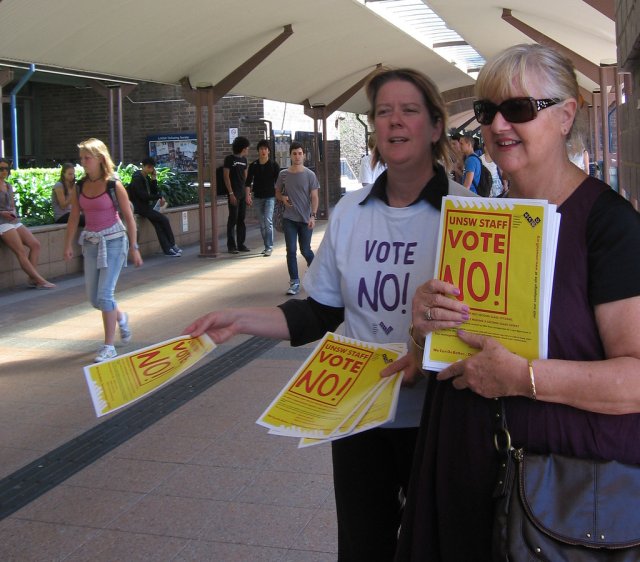
The National Tertiary Education Union (NTEU) at the University of New South Wales (UNSW) has vowed to fight the imposition of a “sub-standard” enterprise bargaining agreement (EBA) after a majority of general staff voted in favour of the agreement in a September 29-October 1 poll.
The agreement fails to meet award protections that limit the use of fixed-term employment, allowing for further deregulation of the workforce. It also reduces flexibility on annual leave entitlements and allows for forced redeployment within the university.
The agreement locks in a 4.33%-a-year compounded pay increase — “far below the 5.1% per year that colleagues at the University of Sydney have won”, an NTEU statement said.
The NTEU, which covers academic and general staff, said the agreement was designed to divide academic and non-academic staff by locking in “second-class” conditions for general staff.
The NTEU campaigned for a “No” vote in a ballot of general staff, however another union that only covers general staff, the Community and Public Sector Union (CPSU), campaigned in favour of the offer.
In the final outcome, 39.55% voted against the agreement, while 60.45% voted in favour.
NTEU UNSW branch secretary Susan Price said the turn-out was big and the “No” campaign had gone well.
“We knew it would be a difficult struggle to defeat an agreement being backed by management, with powerful resources at their disposal, and by another union inexplicably prepared to agree to a substandard offer”, Price said.
“The agreement is yet to be approved by Fair Work Australia. The NTEU will take all possible steps to ensure this substandard agreement is not imposed on staff.”
In a similar dispute at Macquarie University, management broke off negotiations to present general staff with a separate agreement to academics.
The split agreement at Macquarie, which the CPSU also supported, passed with 57% in favour and 43% against in a ballot of general staff on September 23.
The NTEU is concerned the agreements set a bad precedent by locking in inferior conditions for general staff, making it harder to regain parity of pay and conditions with academic staff in the future.
“Academic bargaining is still continuing and will be another opportunity to regain lost conditions. The NTEU is committed to seeking that all such improvements flow on to professional staff at UNSW”, Price said.